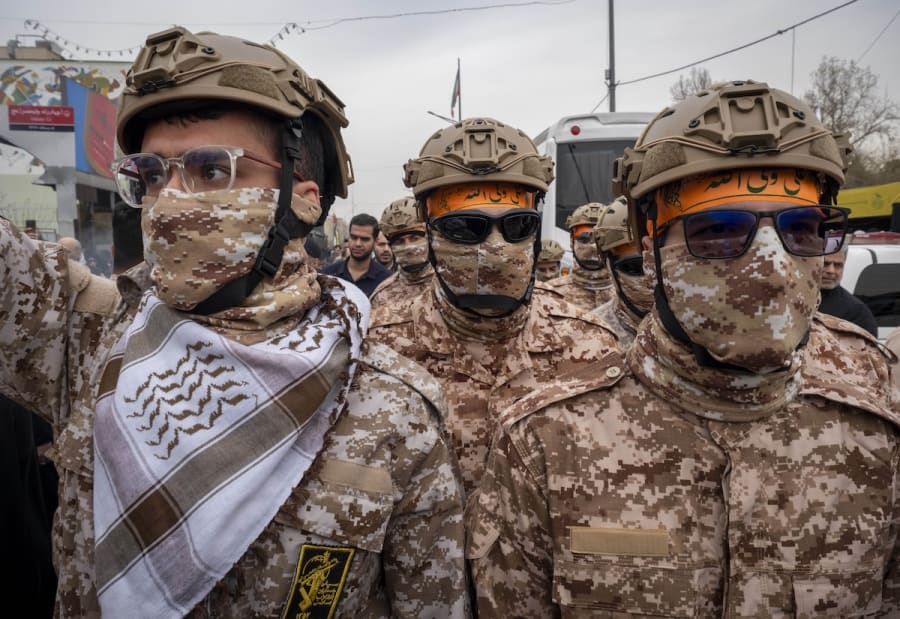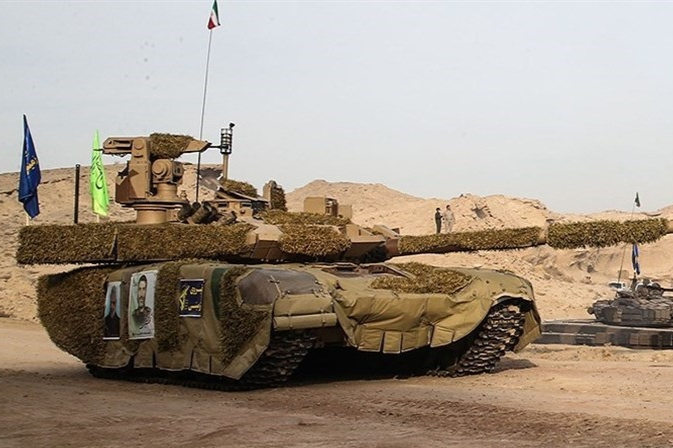What is the IRGC? Explaining Iran’s second army

The regular army of Iran (the ‘Artesh’) fulfills the role of most conventional armies, defending the borders and maintaining order. However, the Islamic Revolutionary Guard Corps (Sepāh-e Pāsdārān-e Enqelāb-e Eslāmi – Army of Guardians of the Islamic Revolution) known as ‘Pasdaran’ for short, referred to as IRGC in English, was established to consolidate the Islamic Revolution in 1979.
The IRGC was founded by Ayatollah Ruhollah Khomeini on April 22, 1979, as Shah Mohammed Reza Pahlavi was overthrown and sent into exile. The Iranian constitution dictates that its role was to uphold and guard the emerging political system. Right from its founding, the IRGC has been on a mission to suppress any resistance to the Islamic regime coming from inside Iran or from foreign bodies. Anything considered a “deviant movement” has been firmly dealt with by the IRGC ever since.
During the course of the Iran-Iraq war in the 1980s the IRGC expanded its role and its power beyond its original mandate, gaining its own army, navy, air force, and later intelligence. After this development, IRGC superseded the regular army and became the dominant military force of Iran. The difference is particularly evident from the 2020 budget, in which the IRGC was allocated $6.96 billion, compared to the conventional military which received just $2.73 billion, according to the World Jewish Congress (WJC).
Accountable only to Iran’s supreme leader, the IRGC has influence and control in almost every area of civil life, including the economy, national security, policing and the judiciary, undermining democratic processes and civic freedom. There are commanders within the IRGC (such as the late Hossein Salami) but ultimately they are subordinate to Ayatollah Ali Khamenei.
Two sectors of the IRGC worth noting are the “Basij” and the Quds force. The Basij (literally, “mobilization”) is a paramilitary volunteer militia which operates as the eyes and ears of the regime in every city throughout Iran. Acting in a manner similar to a police force, the Basij is responsible for security and law enforcement, as well as the strict morality policing which has become so notorious.
There are an estimated 4 to 5 million voluntary members or reservists serving in the Basij. In his book, “Captive Society: The Basij Militia and Social Control in Iran,” Saeid Golkar asserts that the Basij is far more pervasive than many realize. “There are 12,000 Starbucks in the US and 22,000 around the world,” he says, “but in Iran we have more than 50,000 Basij bases and offices.” The morality police of the Basij have come down hard on perceived contraventions of Islam including unmarried couples meeting in public, singing and dancing, and women who show any hair.
The Basij currently has two missions: to provide defensive military training to protect the regime against foreign invasion, and to suppress domestic anti-regime activity through street violence and intimidation, according to counterextremism.com.
Another equally infamous wing of the IRGC is the Quds force (Jerusalem Force). This elite IRGC unit has been behind much of the terrorism in the Middle East. The Quds Force, according to WJC, specializes in unconventional warfare and military intelligence extraterritorial operations. In this way, the ideology and influence of the Islamic regime is exported worldwide through its terror proxies such as Hamas in Gaza, Hezbollah in Lebanon, and the Houthi rebel group in Yemen.

Combining fierce loyalty to the clerical elite with an obsession with America and Israel, the IRGC is characterized by a paranoia concerning plots and conspiracies which might threaten Iran. Resistance against the “Zionist entity” is central to their outlook and philosophy, and until recently there was a huge doomsday clock in Tehran counting down to the destruction of Israel.
To this end, the IRGC operates across the globe – including in Afghanistan, Argentina, Austria, Azerbaijan, Bahrain, Germany, Iran, Iraq, the Palestinian Territories, Lebanon, Mexico, Saudi Arabia, and Syria – according to the WJC. These activities are reportedly aimed at “speeding up the downfall” of Israel and promoting “the liberation of al-Quds,” the Arabic name for Jerusalem.
IRGC’s Quds force is engaged in weapons smuggling, training in asymmetrical warfare, and bankrolling terror activities in the name of “resistance” against Israel and Western influence in the region, in addition to having their own well stocked armory for military operations against Israel.
The IRGC was designated a foreign terrorist organization under Section 219 of the Immigration and Nationality Act by U.S. President Donald Trump in 2019, and is also a designated terror organization in Bahrain, Canada, Paraguay, Saudi Arabia and Sweden.

Jo Elizabeth has a great interest in politics and cultural developments, studying Social Policy for her first degree and gaining a Masters in Jewish Philosophy from Haifa University, but she loves to write about the Bible and its primary subject, the God of Israel. As a writer, Jo spends her time between the UK and Jerusalem, Israel.
You might also like to read this:
















